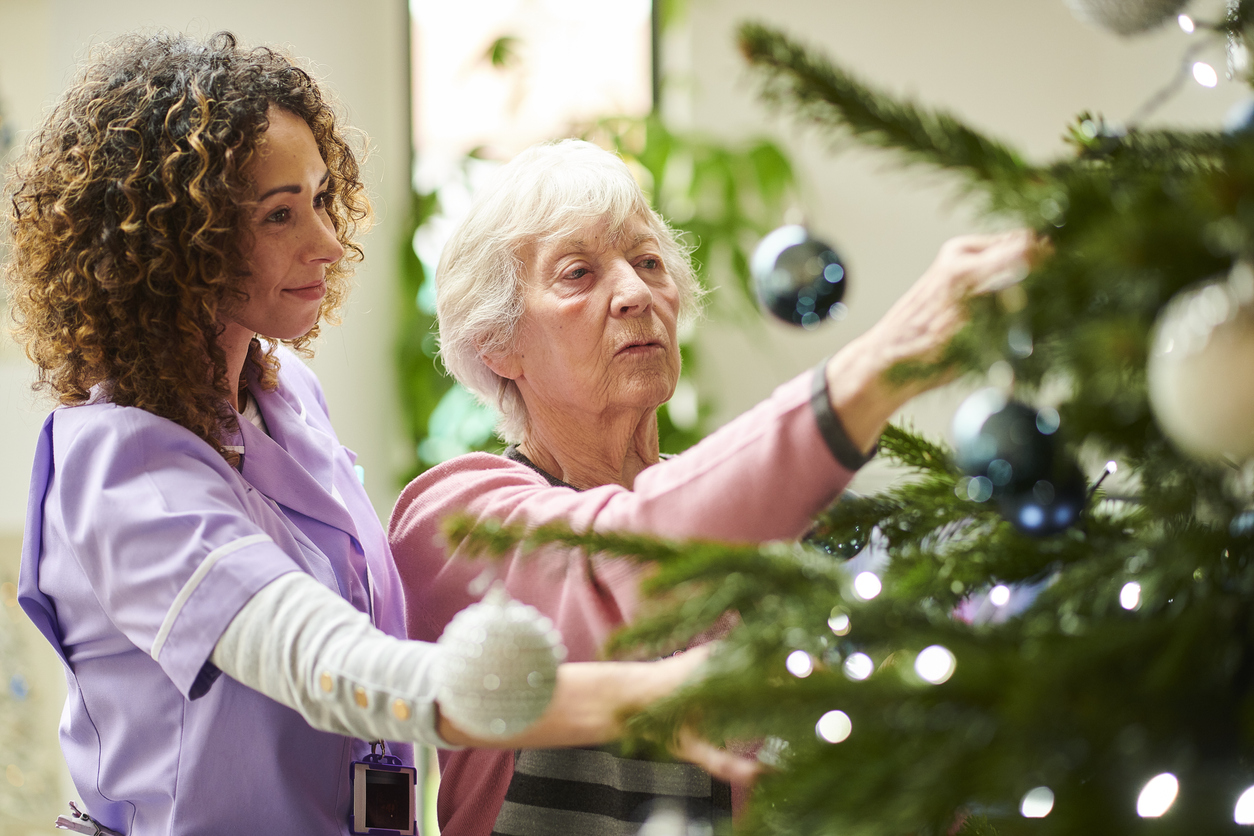Prendre soin de sa santé, un cadeau précieux

Restez à l’affût!
Abonnez-vous au magazine Le Vecteur dès aujourd’hui!
Articles connexes
Restez à l’affût!
Abonnez-vous au magazine Le Vecteur dès aujourd'hui!
Share This Catalyst
Related Articles
Pour les aidants naturels, il est crucial de trouver un équilibre
Pour bien des gens, la période des Fêtes est l’occasion de donner. Nous sommes nombreux à consacrer notre temps et notre attention aux personnes qui nous sont chères et à celles qui ont besoin d’aide. Par contre, pour les soignants non rémunérés et les aidants naturels, donner est un geste de bonté qui se perpétue au-delà des réjouissances de fin d’année. Et cette année, pendant que le reste de la population se prépare à des Fêtes plus modestes dans l’ombre de la COVID-19, ces aidants doivent trouver un équilibre entre les soins qu’ils prodiguent à leurs proches et ceux qu’ils réservent pour leur propre bien-être.
« Nous savons que bien des aidants naturels vivent des niveaux accrus de stress et d’anxiété, affirme Louise Bradley, présidente et directrice générale de la Commission de la santé mentale du Canada (CSMC). Avec la pandémie qui a bouleversé nos routines et éclipsé nos plans, il est plus important que jamais pour les aidants de s’assurer que leurs techniques fonctionnent et d’éviter de négliger leur propre santé mentale. »
Denise Waligora, spécialiste des formations de Premiers soins en santé mentale (PSSM) de la CSMC, connaît trop bien cet exercice d’équilibre. « Mes deux parents souffraient déjà de graves problèmes de santé physique quand mon père a reçu son diagnostic d’Alzheimer l’an dernier, explique-t-elle. J’ai la chance de pouvoir travailler à distance tout en prenant soin d’eux, mais j’ai toujours eu du mal à prendre du temps pour moi-même. »
L’un des principaux défis est d’apprendre à fixer des limites. « Un soir, ma mère a commencé à énumérer tout ce qu’elle voulait que nous fassions après le souper. J’ai finalement dû m’affirmer. Je lui ai rappelé qu’après tous les rendez-vous et obligations qui remplissent mes journées, j’ai besoin d’un peu de répit le soir venu. Comme proches aidants, nous devons reconnaître à quel moment la charge devient trop lourde et apprendre qu’il est acceptable de dire “non, pas maintenant”. »
Pour Mme Waligora, les moments de répit sont une importante forme d’autosoins. « Même si la pause est de courte durée, poursuit-elle, prenez le temps dont vous disposez et ne vous sentez pas coupable de le faire. Nous avons tous besoin de temps pour recharger nos batteries. »
Même si tous les types d’aidants font face à des défis semblables, les aidants de personnes âgées savent qu’il peut être plus difficile de soutenir la santé mentale de leurs proches que de répondre à leurs besoins physiques. Heureusement pour Mme Waligora, le fait d’animer le cours de PSSM Aînés l’a aidée à combler le fossé générationnel.
« Je crois que personne n’avait jamais dit à mes parents que leurs sentiments sont légitimes, explique-t-elle. Ce cours m’a enseigné l’importance de valider leurs craintes. Il m’a également permis de raffermir mes compétences en communication et d’engager avec mes parents des discussions qui n’auraient pas eu lieu auparavant. »
Pour aider ses pairs à surmonter cette barrière de communication, Mme Waligora a mis son expérience au service de la CSMC pour la préparation de sa fiche d’information Prendre soin des adultes plus âgés pendant la pandémie de COVID-19, qui contient des conseils pratiques pour soutenir la santé mentale de proches âgés.
De plus, la communication joue un rôle tout aussi déterminant pour les aidants eux-mêmes. Le temps consacré à nos proches peut entraîner l’isolement, particulièrement durant une pandémie mondiale où les rassemblements ont pratiquement disparu. Mais comme le souligne Mme Waligora, le maintien des liens sociaux a une valeur inestimable pour les proches aidants. « N’ayez jamais peur de faire appel à votre réseau de soutien, conseille-t-elle. Vous n’avez pas à toujours jouer le rôle de la personne “forte”. Vous avez le droit de demander de l’aide. »
Mme Bradley abonde dans le même sens. « Les proches aidants ont tendance à reléguer leur propre bien-être mental au dernier rang, dit-elle. Mais il est impossible de donner si notre propre réservoir est vide. Prendre soin de vous-même, de quelque façon que ce soit, fera de vous un aidant en meilleure santé et plus efficace. »
Pour apprendre à prendre votre propre santé en main, lisez le document Premiers soins en santé mentale COVID-19 – Guide de prise en charge de sa santé mentale pour bâtir sa résilience. « S’occuper d’un proche est un travail noble et précieux, conclut Mme Bradley. Mais prendre soin de soi-même n’a pas de prix. »
Amber St. Louis
